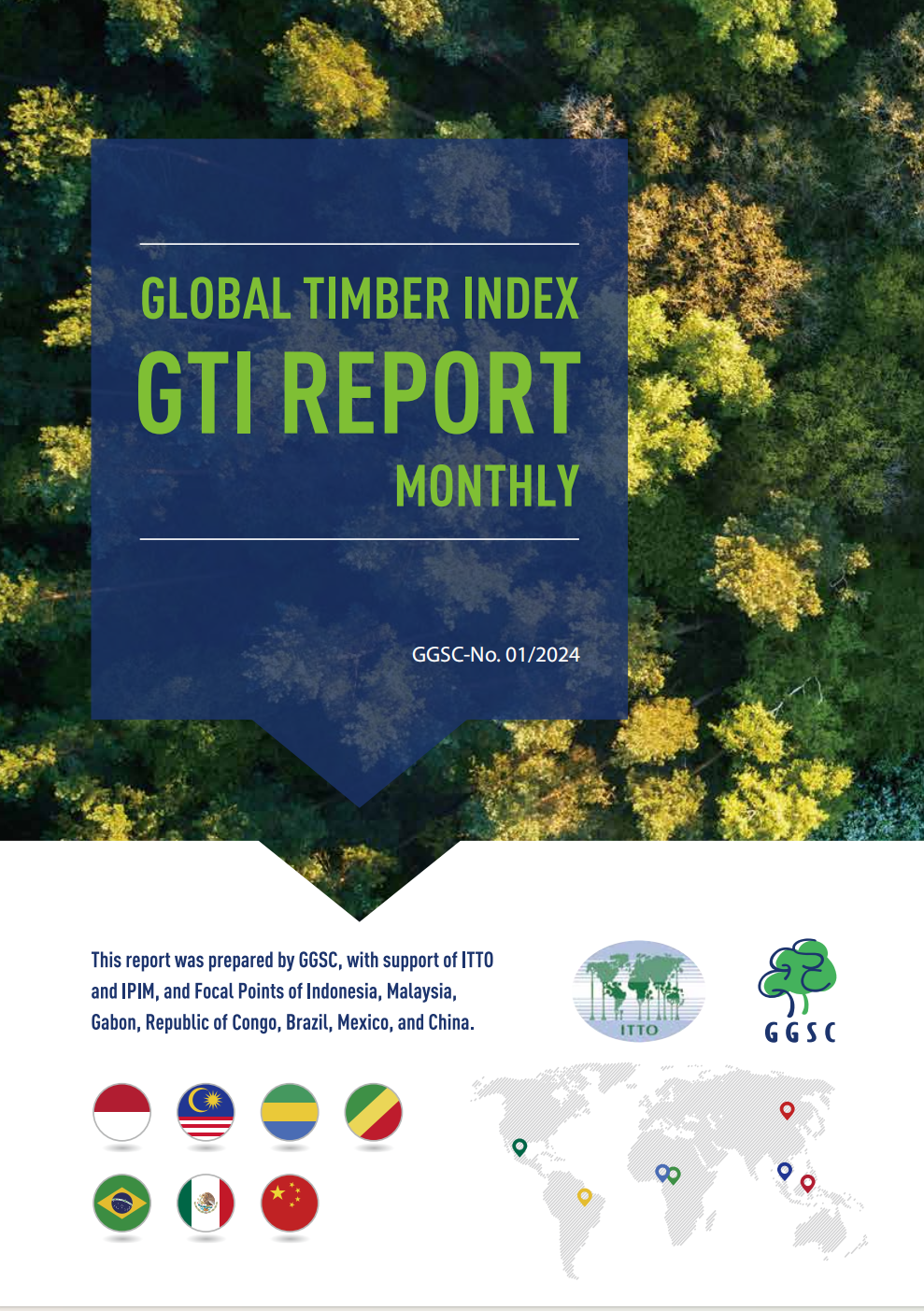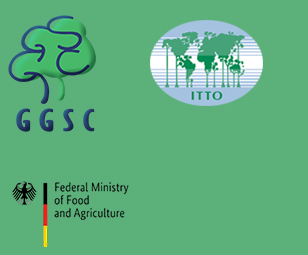

The Global Timber Index (GTI) report for January 2024 revealed that due to the impact of the New Year holiday, the trading volume of timber markets in the GTI pilot countries generally decreased. The GTI values of Indonesia, Malaysia, Gabon, the Republic of the Congo (ROC), Brazil, Mexico and China were all below the critical value (50%), registering 45.7%, 26.8%, 31.4%, 34.7%, 47.2%, 32.4%, and 34.1% respectively. Encouragingly, Brazil, Malaysia and ROC saw an increase in the new orders index compared to the previous month, indicating some improvement on the demand side of the timber markets.
Latest news showed that the stability of global economy and the regularity of freight had been affected by the conflicts in the Red Sea. GTI sample enterprises from Brazil, China, Malaysia, and Indonesia all reported higher shipping costs, reduced shipments, and slower transportation speed. Brazilian enterprises suggested enhancing safety for commercial vessels crossing the Red Sea and increasing number of transports on alternative routes. In addition to shipping matters, GTI sample enterprises also reported some other new challenges they were facing. Gabonese enterprises reported a lack of sales channels for their products, and a slowdown in production activities at the Special Economic Zone NKOK as the number of orders decreased. Mexican enterprises said there was a high level of customer turnover in the timber sector, and the number of orders was unstable. Besides, Chinese enterprises reported that the production volume decreased compared with previous years, and the costs of equipment increased as a result of intermittent operations.
Despite the downturn in the timber markets, some countries had made encouraging progress in legal and sustainable practices of the timber sector. For example, on January 16, Brazilian Minister of Environment and Climate Change, Marina Silva, said at the annual meeting of the World Economic Forum that environmental governance and monitoring actions helped reduce deforestation in the Amazon by about 50% in 2023 compared to 2022, which is equivalent to a reduction of approximately 250 million tons of carbon dioxide emissions, while Brazil is committed to achieving zero deforestation by 2030. In Mexico, National Institute of Ecology and Climate Change (INECC) obtained an innovative instrument (AccuTOFTM DART® Express) that uses real-time mass spectrometry to detect wood "fingerprints". The instrument is capable of identifying wood in a fast, accurate and relatively cost-effective way as wood species can be determined from a small sample. Therefore, it can help combat illegal logging and trade.

| E-mail:ggsc@itto-ggsc.org | Tel:86-10-62888626 |


Sigh Up for Emails |
|